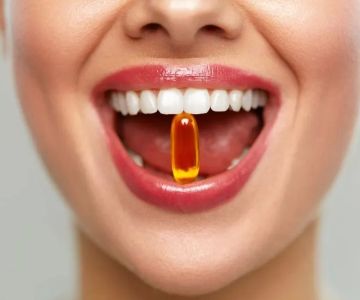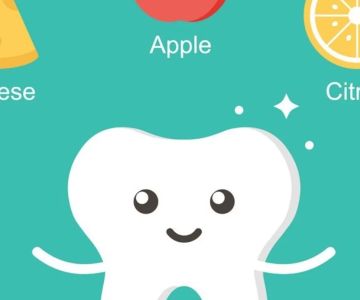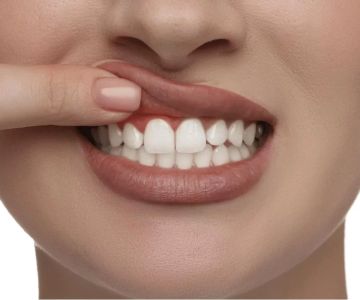Why Continue TPN If Oral Diet Is Allowed?
Total Parenteral Nutrition (TPN) is a life-saving treatment that provides essential nutrients directly into the bloodstream when an individual cannot consume food orally. It’s often prescribed for patients with severe digestive issues, those recovering from major surgery, or those who have diseases affecting nutrient absorption. However, there are times when patients who are capable of consuming an oral diet are still given TPN. This raises the question: why continue TPN if an oral diet is allowed? In this article, we’ll explore the reasons behind this approach, its benefits, and how it can support recovery and overall health.
1. What is Total Parenteral Nutrition (TPN)?
TPN is a method of providing nutrition intravenously. It is a carefully balanced solution of glucose, amino acids, lipids, vitamins, and minerals. TPN is typically used in patients whose digestive systems are not functional, such as those with gastrointestinal diseases, severe burns, or those who have undergone major surgeries that impair digestion. The nutrients are directly infused into the bloodstream, bypassing the gastrointestinal tract entirely.
2. The Role of Oral Diet in Recovery
Oral nutrition is the natural and preferred method of consuming food. It’s not only a source of essential nutrients, but it also plays a crucial role in stimulating the digestive system. For patients who are able to tolerate food, a balanced diet is vital in supporting immune function, promoting healing, and providing energy. However, certain health conditions may impair digestion or cause inadequate absorption of nutrients even when food is ingested.
3. Reasons to Continue TPN Despite Oral Intake
There are several reasons why TPN might still be recommended for patients who are allowed to eat by mouth:
3.1 Nutrient Absorption Issues
Even if a patient is able to eat, certain conditions such as malabsorption disorders, inflammatory bowel diseases, or surgery-induced damage to the intestines can limit the absorption of nutrients from food. In such cases, TPN provides a direct and more reliable source of nutrition, ensuring that the patient receives all the necessary vitamins, minerals, and calories required for recovery.
3.2 Insufficient Caloric Intake
Sometimes, a patient may not be able to eat enough to meet their caloric and nutritional needs, especially if their appetite is reduced due to illness or surgery. TPN can supplement their diet and provide additional energy, allowing them to continue their recovery without the risk of malnutrition.
3.3 Post-Surgery or Recovery Phase
During the post-surgical recovery phase, patients may have difficulty consuming enough food to support their recovery due to pain, nausea, or other complications. TPN can help maintain nutritional status and prevent further complications that could arise from inadequate nutrition, such as delayed wound healing or weakened immunity.
3.4 Preventing Nutrient Deficiencies
TPN provides an individualized and controlled source of nutrients, reducing the risk of deficiencies that might occur if the oral intake is inadequate. This is particularly important for patients with chronic conditions or those undergoing treatment for severe illnesses, where the need for certain vitamins and minerals is heightened.
4. Benefits of Continuing TPN
Maintaining TPN, even when oral food intake is allowed, can have several important benefits:
4.1 Enhanced Healing and Recovery
By ensuring a constant and adequate supply of essential nutrients, TPN supports faster healing and recovery, particularly in patients who are struggling with the intake of solid food. It helps maintain body strength, tissue repair, and the functioning of the immune system.
4.2 Reducing the Risk of Complications
For patients recovering from surgery or battling severe illness, inadequate nutrition can result in complications such as infections, delayed wound healing, and muscle wasting. TPN can help mitigate these risks by ensuring that the body has a steady stream of nutrients.
4.3 Improved Quality of Life
For patients who are struggling with their appetite or digestion, knowing that they are receiving the necessary nutrients can provide peace of mind. It also alleviates the stress and discomfort that comes with trying to eat when it’s difficult or unpleasant. This contributes to a better overall quality of life during recovery.
5. Transitioning from TPN to Oral Diet
One of the goals when using TPN is to transition to a fully oral diet as soon as possible. However, the transition must be done carefully. When a patient is ready to consume more food, their intake is usually monitored closely to ensure that it’s sufficient for their needs. As their digestive system heals, the TPN support can be gradually reduced, ensuring that the body continues to receive the right balance of nutrition.
6. Conclusion
In conclusion, while an oral diet is an important component of a patient’s recovery, TPN can still play a crucial role, especially when there are concerns about nutrient absorption, insufficient caloric intake, or post-surgery recovery. By providing the right nutrition directly into the bloodstream, TPN ensures that the patient remains strong and supported during their healing process. It is important for healthcare providers to carefully assess each patient’s needs and determine the most appropriate approach to nutrition to ensure the best possible recovery outcomes.







 McCall Family Dentistry5.0 (718 review)
McCall Family Dentistry5.0 (718 review) Virginia Biological Dentistry4.0 (250 review)
Virginia Biological Dentistry4.0 (250 review) Hillside Dental Care4.0 (192 review)
Hillside Dental Care4.0 (192 review) Hillside Family Dentistry4.0 (108 review)
Hillside Family Dentistry4.0 (108 review) Dr. Kenneth J. Kalil0.0 (0 review)
Dr. Kenneth J. Kalil0.0 (0 review) John M. Chaves, DDS4.0 (142 review)
John M. Chaves, DDS4.0 (142 review) The Importance of Oral Health Education During Pregnancy for a Healthy Pregnancy
The Importance of Oral Health Education During Pregnancy for a Healthy Pregnancy Best Tips for Brushing Your Teeth Properly for Healthy Gums: Essential Techniques for Oral Health
Best Tips for Brushing Your Teeth Properly for Healthy Gums: Essential Techniques for Oral Health Why Skipping Dental Checkups Can Lead to Bigger Oral Health Problems
Why Skipping Dental Checkups Can Lead to Bigger Oral Health Problems Advantages of Porcelain Dental Restorations
Advantages of Porcelain Dental Restorations How Can Diabetes Cause Tooth and Gum Problems? Preventing and Managing Oral Health Issues
How Can Diabetes Cause Tooth and Gum Problems? Preventing and Managing Oral Health Issues Healthy Habits for Promoting Good Oral Health and Hygiene: Tips for a Healthy Smile
Healthy Habits for Promoting Good Oral Health and Hygiene: Tips for a Healthy Smile